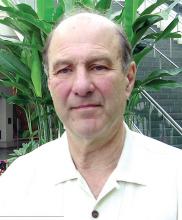The opioid crisis: Psychiatrists are well equipped to intervene
The U.S. opioid crisis and ongoing epidemic of chronic pain are inextricably intertwined, and psychiatrists are increasingly being called upon to intervene.
In a June 2016 blog post penned in the wake of new Centers for Disease Control and Prevention prescribing guidelines calling for a move away from opioids as the first-line treatment for many types of chronic noncancer pain, National Institute on Drug Abuse (NIDA) Director Nora D. Volkow, MD, decried the absence of psychiatrists on the front lines.
“Thus far, psychiatrists have not taken an active role in addressing the problem of chronic pain, but they have an important role to play here, for multiple reasons,” she wrote.
Chronic pain is closely linked to multiple psychiatric problems, she explained.
Furthermore, extensive evidence supports the use of some nonpharmacologic psychiatric therapies, she noted.
Indeed, there are numerous approaches, which have been shown to be effective or are showing promise in trials, that psychiatrists can take to intervene in the crisis and to help individual patients control pain and reduce the need for opioid medication. One that is underused and undervalued despite decades of research demonstrating its effectiveness, and which, according to David Spiegel, MD, has the potential to help at least two-thirds of affected adults, is hypnosis.
Power of hypnosis
“The brain has a whole lot to do with pain perception, and there’s a lot you can do to control it,” said Dr. Spiegel, the Jack, Samuel, and Lulu Willson Professor in Medicine in the department of psychiatry and behavioral sciences at Stanford (Calif.) University and a member of the Institute of Medicine.
And despite what many patients and physicians believe, it’s simply not true that if you’re not using a drug, you can’t actually control pain, he added.
For example, in a prospective randomized study of 241 patients undergoing percutaneous vascular and renal procedures, he and his colleagues found that self-hypnotic relaxation was superior to both intraoperative standard of care and structured attention (i.e., the “friendly nurse” group) for reducing pain and anxiety, and was better than standard of care for reducing drug use and reducing procedure time. It also improved hemodynamic stability compared with the other approaches (Lancet. 2000 Apr 29;355[9214]:1486-90).
“It works,” said Dr. Spiegel, also associate chair of the psychiatry department at Stanford.
Hypnotizability can be assessed using various validated scales; he said he can determine hypnotizability within 5 minutes, in part by giving a suggestion that the patient’s arm is getting lighter and is beginning to float. A component of involuntariness – if the patient’s arm feels like it is floating effortlessly and actually moves up in the air – indicates hypnotizability.
Most children, and about two of every three adults, can be hypnotized, he said.
Self-hypnosis, particularly in the chronic pain setting, can be life-changing, as patients can use it whenever needed once they learn how, he said, describing one young patient who had been suffering from intractable migraines and associated vomiting for years, and had failed to respond to numerous medications. Within minutes of being taught self-hypnosis, she said her pain had decreased from 7 to 3 on a 0-10 scale, and after coming out of the hypnotic state, she described feeling as rested as if she’d been sleeping for a decade.
Her mother broke down in tears of relief, Dr. Spiegel said.
Another patient who had suffered from immobilizing back pain had a similar experience: His back pain was immediately reduced by about 60% .
“Does it always work? No, but no treatment always works, and at worst it’s harmless,” Dr. Spiegel said, adding: “I don’t get people addicted to hypnosis. It just doesn’t happen.”
So why is hypnosis still considered outside the mainstream? In part that’s the case because of its “purple cape, dangling watch” image, but there also is a conception that hypnosis takes away control. In reality, it enhances control, he said.
“I think every psychiatrist – every physician – should know hypnosis,” he said.
Many, but not all medical schools teach hypnosis, and at least two U.S. societies – the American Society of Clinical Hypnosis and the Society for Clinical and Experimental Hypnosis – conduct workshops and annual scientific meetings where those interested can learn, he noted.
“It’s not that hard to learn ... and it’s a very useful skill for a professional,” he said.








